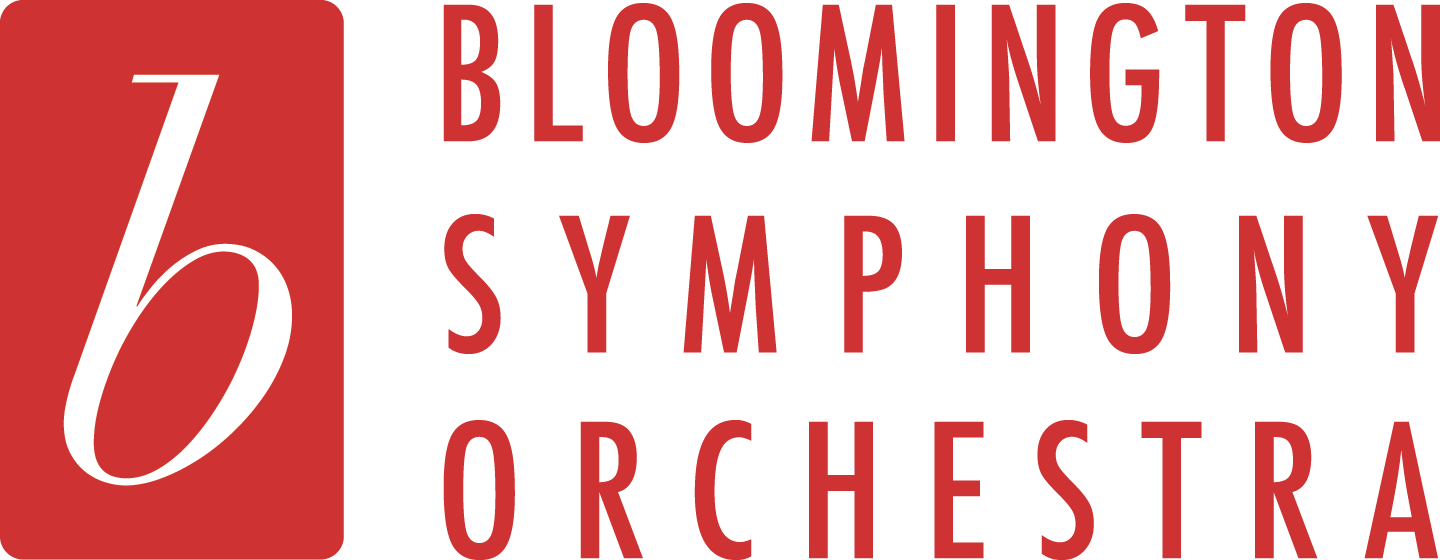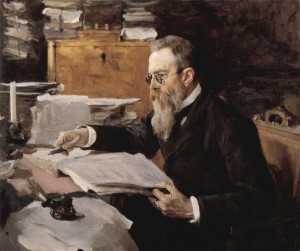This final “Concert Preview” will provide background information on the pieces the BSO will perform at its concert on Sunday, November 24. Each Concert Preview is written by the BSO’s Artistic Director and Conductor, Manny Laureano.
Nikolai Rimsky-Korsakov and his misunderstood child: Scheherazade
Nikolai Andreyevich Rimsky-Korsakov was born in 1844 into a celebrated naval and military family in Tikhvin, a provincial city in Russia. His gift for music was evidenced early on, as with Alexander Borodin, by playing previously-heard tunes and their harmonies on the piano. Also, like Borodin, his thoughts of a career were not aimed at music. Rather, it was on military service such as he saw his much older brother undertake. It is no surprise that he would one day join the cadre of Russian composers whose music would be considered nationalistic and representative of a certifiable Russian musical language.
Indeed, the name Rimsky-Korsakov is often at the lead of the so-called “Five” of Russian composers. They were Balakirev, Cui, Mussorgsky, Borodin, and Rimsky-Korsakov. These composers all knew each other and fairly mentored one another as they labored to embody harmonies and melodies that would be embraced by a culture.
Once again, as with Borodin, military duty got in the way of composing for young Nikolai. He became, in his own words, “an officer dilettante, who sometimes enjoyed playing or listening to music.” Not to worry, as Balakirev came back into his life and encouraged him to continue his work and finish his Symphony in Eb minor. This seemed to be all the push he needed in order to come back to composing seriously and in earnest. In yet another of relentless similarities with Borodin, it was a beautiful pianist named Nadezhda Purgold who helped publish her new husband’s arrangements and help keep him on track after their rather extensive honeymoon, of course.
His output of compositions was plentiful and Rimsky-Korsakov became a story-teller in operas and also tone poems. Chief among these musical paintings is the story of Scheherazade, based on the tale of 1,001 Arabian Nights. Nikolai had a tremendous gift for orchestration. It seemed that when he chose to portray a mood or character, he was never at a loss for the necessary color that his skillful imagination would provide.
In Scheherazade, his choice of the lower strings, woodwinds, and brass which open the tone poem are a stunning portrait of the Sultan who has wedded the anxious but clever Scheherazade. What sweeter voice could speak for our presumably doomed lass but the solo violin aided by the punctuation of rolled harp arpeggios as she spins tale after tale in order to save her life for almost three years? How else shall we summon the rolling waves of the sea but by having the strings undulate rhythmically underneath the quietly soaring themes of Sinbad’s ship?
But Rimsky-Korsakov was not limited to recreating a musical picture of objects, people, or events. He was also able to invoke emotions with his pen, as well. Through his woodwind chords he was able to portray the innocence of Scheherazade on her wedding night. Ascending and descending flutes lines easily illustrate the dizzying love between a young princess and her prince. His heart stopping use of speedy technical passages make the listener grip his armrest in the final race across the sands to the sea with horses straining against their reins. No, this is not what one would refer to as “easy listening.” It excites as easily as it soothes from one moment to the next.
The good news is that the programmatic aspect of this music has long-been overstated. The fact is that Rimsky-Korsakov was using the story of Scheherazade as a basis for his music but had no definite plot line in mind. The titles for the various movements were mostly afterthoughts that came at the behest of fellow composers. But he merely wished to create a work that would invoke images that would be personal to each listener. So, free yourselves from the bonds of what you may have read anywhere regarding who does what and where. Scheherazade is a musical gift for the mind to do with as the listener chooses. A wonderful post-concert activity would definitely be a comparison of mental notes that the music brings to mind for each listener. Such would not have displeased Nikolai Rimsky-Korsakov.
Please join us for this concert, “Sit Right Back and You’ll Hear a Tale,” on Sunday, November 24 at 3 p.m. at Immanuel Lutheran Church. To purchase tickets in advance, please visit our online box office here. Tickets are always available at the door.

